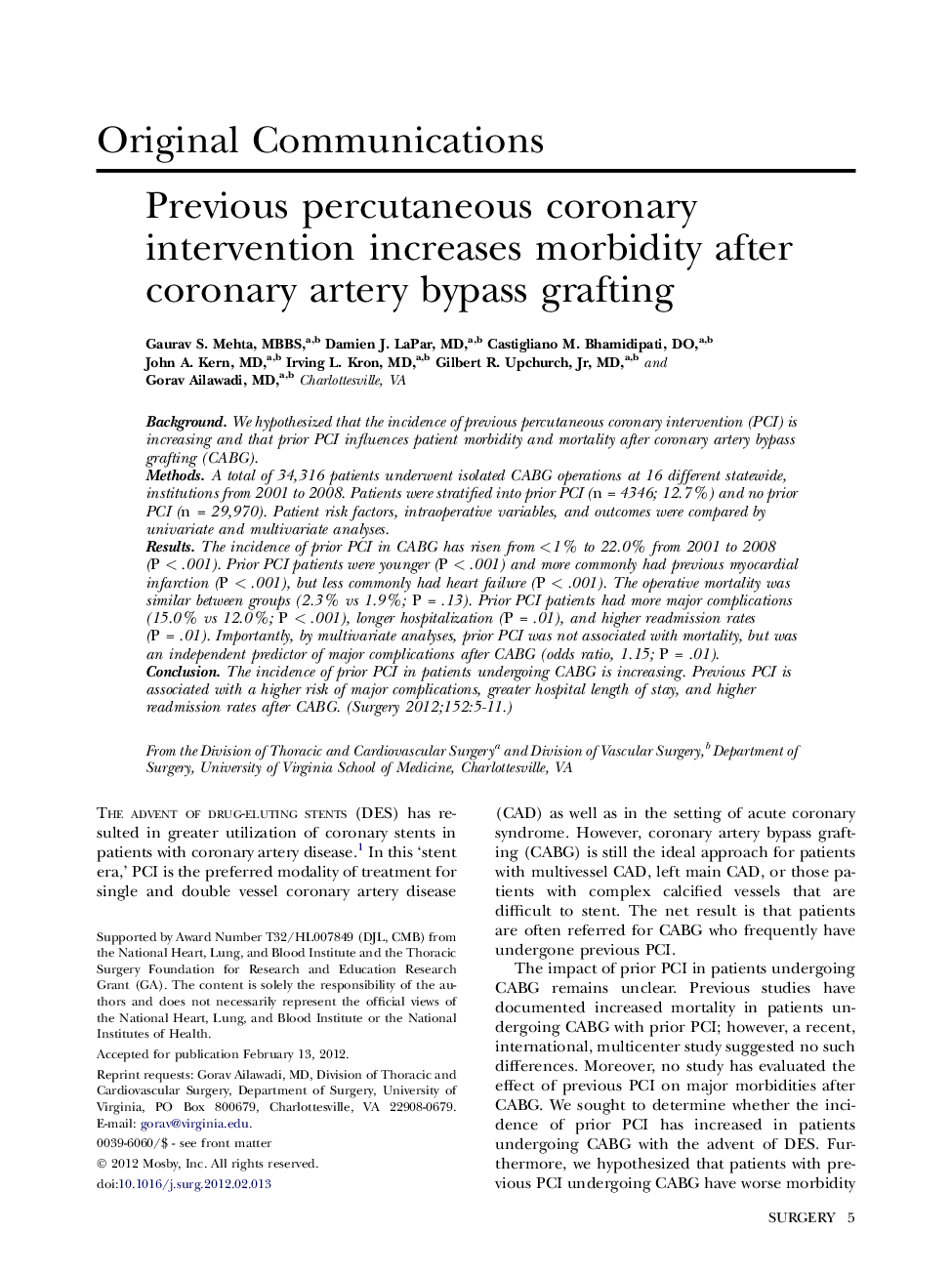| Article ID | Journal | Published Year | Pages | File Type |
|---|---|---|---|---|
| 4307970 | Surgery | 2012 | 7 Pages |
BackgroundWe hypothesized that the incidence of previous percutaneous coronary intervention (PCI) is increasing and that prior PCI influences patient morbidity and mortality after coronary artery bypass grafting (CABG).MethodsA total of 34,316 patients underwent isolated CABG operations at 16 different statewide, institutions from 2001 to 2008. Patients were stratified into prior PCI (n = 4346; 12.7%) and no prior PCI (n = 29,970). Patient risk factors, intraoperative variables, and outcomes were compared by univariate and multivariate analyses.ResultsThe incidence of prior PCI in CABG has risen from <1% to 22.0% from 2001 to 2008 (P < .001). Prior PCI patients were younger (P < .001) and more commonly had previous myocardial infarction (P < .001), but less commonly had heart failure (P < .001). The operative mortality was similar between groups (2.3% vs 1.9%; P = .13). Prior PCI patients had more major complications (15.0% vs 12.0%; P < .001), longer hospitalization (P = .01), and higher readmission rates (P = .01). Importantly, by multivariate analyses, prior PCI was not associated with mortality, but was an independent predictor of major complications after CABG (odds ratio, 1.15; P = .01).ConclusionThe incidence of prior PCI in patients undergoing CABG is increasing. Previous PCI is associated with a higher risk of major complications, greater hospital length of stay, and higher readmission rates after CABG.
